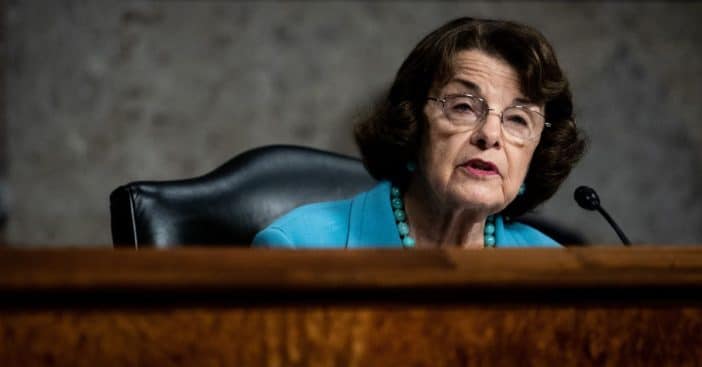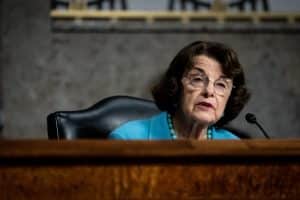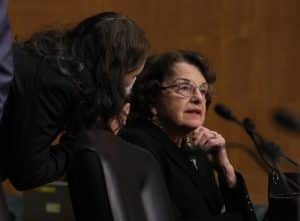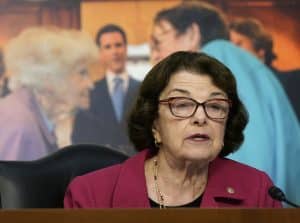
- Senator Dianne Feinstein died on September 28 at the age of 90.
- She was the longest-serving woman in the U.S. Senate and the longest-serving Senator of California.
- Throughout her political career, Feinstein worked across the political aisle and championed women’s empowerment and human rights in the U.S. and across the globe.
On September 28, Dianne Feinstein passed away. The senator was 90 years old when she died at her Washington, DC home mere hours after continuing her service in the U.S. Senate. She had faced mounting pressure in recent years to retire, which she responded to with, “I remain committed to do what I said I would when I was re-elected in 2018: fight for Californians.”
Throughout her political career, which began in 1970, Feinstein frequently worked across the aisle on a variety of issues, from human rights to women’s suffrage. Dianne Feinstein is survived by her daughter Katherine, stepdaughters, stepson Rick Mariano, and seven grandchildren.
The sweeping legacy of Dianne Feinstein

“There are few women who can be called senator, chairman, mayor, wife, mom and grandmother,” her chief of staff, James Sauls, said in a statement. “Senator Feinstein was a force of nature who made an incredible impact on our country and her home state.” She had been the oldest member of the Senate and the longest-serving senator of California; Feinstein had planned to retire when her term formally ended at the end of 2024.
RELATED: All The Stars We Lost In 2022: In Memoriam
Feinstein famously reached out to connect and work with people of all different backgrounds, both in terms of politics and other demographics; she embraced Senate Judiciary Committee Chairman Lindsey Graham in 2020 and praised his conduct in a Supreme Court nomination hearing.
Additionally, in the wake of America’s withdrawal from Afghanistan, Feinstein was among all 24 female senators who penned a bipartisan letter to President Biden calling for the protection of Afghan women and girls.
Putting a spotlight on all issues

Fueling Feinstein’s decades-long political career was her dedication to hearing from all who wanted a voice. “I truly believe that there is a center in the political spectrum that is the best place to run something when you have a very diverse community,” she insisted in 2017. “America is diverse; we are not all one people. We are many different colors, religions, backgrounds, education levels, all of it.”
Feinstein spearheaded a federal ban on assault weapons in 1994 and in 2014 produced a comprehensive report on the use of torture by the CIA in the immediate aftermath of 9/11. When asked by CBS if she felt it was necessary to revisit these acts so many years later, she countered, “Read the report, and you tell me if you think this is how you want the country to behave.”

In recent years, Feinstein had faced increasing health battles and only recently was it enough to keep her from her duties. In February, she suffered from complications related to shingles, which led to an extended absence; she returned in mid-May, wheeled into the Capitol with one eye closed. In August, she was hospitalized after she fell in her San Francisco home.
However, throughout her political career, she was an inspiration for countless of her female colleagues, who she helped to uplift even when they did not agree on politics. Even without working directly with them, however, as the first woman to chair the Senate Rules and Administration Committee and the Senate Select Committee on Intelligence, Feinstein set a new precedent and blazed a trail for countless others to follow in her wake.
Rest in peace, Dianne Feinstein.

